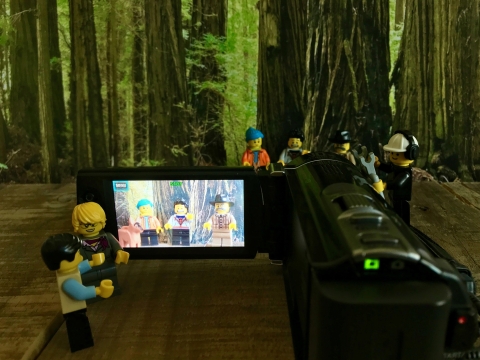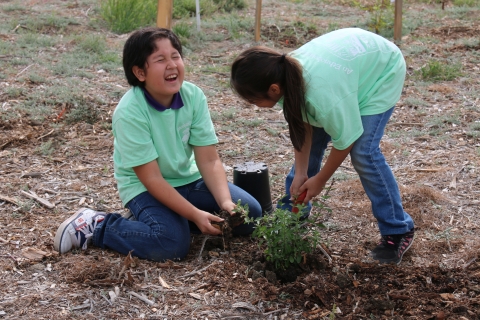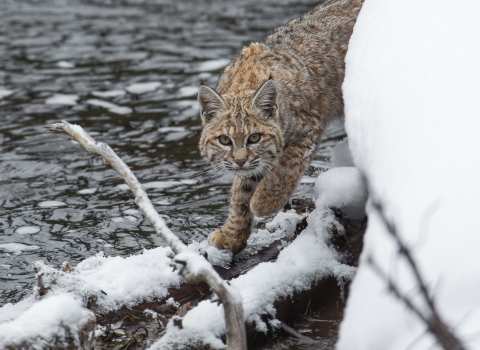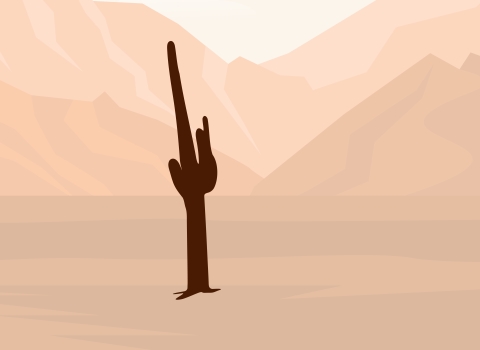“I’ve learned that people will forget what you said, people will forget what you did, but people will never forget how you made them feel.” —Maya Angelou, author, Civil Rights activist and poet
And herein lies the power of story.
We’re living in world where we are constantly being bombarded with messages, and with so much chatter, how can your message stand out from the crowd? The key is creating a message that resonates in a person’s heart. Individuals and organizations that can tell a good story can stand out and make an emotional connection with an audience.
Unlike other communication mediums, video has the unique power to create an immediate emotional connection. When done well and for the right audience, it can become your most powerful tool for generating community support, inspiring others, and celebrating success.
“Facts don’t have the power to change someone’s story. Your goal is to introduce a new story that will let your facts in.” — Annette Simmons, author
Gaining Community Support
Our audiences may be unfamiliar with or have preconceived ideas about the work that we do. For example, a land trust may seek to explain the benefits of land conservation to people who do not know what a land trust is nor the importance of protecting a specific property.
Starting the conversation with a bunch of statistics and facts on biodiversity may not change people’s minds. A better approach would be to tell a story about the land, the people, the organization and the difference we can make.
Remember, people are bombarded with information daily, and it often doesn’t change the narrative in their heads. Painting a compelling story is a more effective way to change someone’s perspective. Stories give people a new way of seeing the world.
“We live in a world where there is more and more information, and less and less meaning.” — Jean Baudrillard, sociologist
Inspiring Others
As we begin to share compelling conservation stories we have the power to inspire others to get involved, learn from us and take on some of the greatest conservation challenges of our time. It is both an opportunity and responsibility to tell the most compelling stories we can to conserve the special places in our communities.
“If you want to learn about a culture, listen to the stories. If you want to change a culture, change the stories.” — Michael Margolis, CEO of Get Storied
A conservation easement is a voluntary legal agreement between a landowner and a government agency or qualified conservation organization that restricts the type and amount of development that may take place on a property in the future. Conservation easements aim to protect habitat for birds, fish and other wildlife by limiting residential, industrial or commercial development. Contracts may prohibit alteration of the natural topography, conversion of native grassland to cropland, drainage of wetland and establishment of game farms. Easement land remains in private ownership.
Learn more about conservation easement in Alska
Celebrating Success
Stories have the unique power to both engage new audiences and re-engage supporters. The opportunity to find and tell powerful stories connects people to your mission and values. As you take time to highlight your success stories, you’ll motivate your staff, recognize your partners, and engage your advocates.
Getting Started
The Coastal Program, Land Trust Alliance, and Cara Jones collaborated to prepare Creating Video for Impact — a tutorial that provides everything from developing your conservation story to the nuts and bolts of video creation so you can have a valuable engagement tool.
Get started today Take the free online course by enrolling and creating a participant account.
Project Partners
The U.S. Fish and Wildlife Service’s Coastal Program is a voluntary, partnership-based, habitat conservation program. Working on public and private land, locally-based field staff provide technical and financial assistance to willing partners to conserve fish, wildlife, plants, and their habitats for the continuing benefit of the American people. Learn more at Coastal Program.
The Land Trust Alliance works with more than 1,000 land trusts across
the country that are conserving millions of acres of land in local communities every year. The Alliance supports these land trusts through training, resources, and advocacy to help accelerate land conservation across the country. Learn more at Land Trust Alliance.
Cara Jones is a multiple Emmy Award winning reporter, author, filmmaker, and founder of Storytellers for Good. Storytellers for Good promotes art of storytelling by creating compelling short films and providing one-of-a-kind storytelling education for people and organizations making a positive difference.







